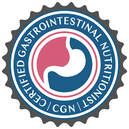|
FRUITPHOBIA
Fresh seasonal fruit is so delicious! There is nothing that compares to a bright red strawberry picked in the middle of June or a fresh papaya drizzled with lime juice when traveling in Hawaii. Especially in the hotter months, cooler water-rich foods like fruit are more often desired than a hot meal. Unfortunately, with the popularity of low carbohydrate diets many individuals are fearful of fruit. Many paleo and low carb diet advocates recommend sticking to only small amounts of low sugar fruits like berries stating that other fruit provide too much unnecessary sugar. I have had multiple patients in practice that are too afraid to eat more than a ½ cup of berries per day! I agree that it is important to reduce your intake of added refined sugars like high fructose corn syrup, maple syrup, honey, sugar, and other processed foods. However, this does not immediately place fruit into the same category. Although fruit does contain sugar (glucose and fructose), it is not found in the same concentration as high fructose corn syrup in sodas, pastries, pancake syrups, etc. For example, soda contains a sugar ratio of 60% fructose to 40% glucose. One 20 oz bottle of Coke contains roughly 36 grams of fructose. Now compare that to a banana, which contains 7 grams of fructose, or a medium sized apple with 13 grams fructose. When do you sit down and eat 7 bananas in one sitting? Never! Plus, that banana comes in a completely different package, rich in fiber, and made by nature. However, this way of thinking can cause harm. You are not addicted to sugar if you enjoy fruit. Fruit is rich in easy to digest carbohydrates, antioxidant rich vitamins and minerals, gut healing fiber, and anti-inflammatory polyphenols. Plus, they are easy to throw into a bag and hit the road. Rather, if fruit is lacking in your diet you may be missing out on a lot of health benefits. REASONS WHY FRUIT ARE GOOD TO EAT Fruit are Rich in Polyphenols: Polyphenols are plant compounds that are found most concentrated in the outer parts of plants. These chemical compounds have been studied in relation to their potent anti-inflammatory and antioxidant capacities. Each type of polyphenol has different health benefits. Therefore, it is important to consume a variety of unpeeled fruit (unless it's a melon or banana of course). Polyphenols have been shown to help:
Fruit Are Rich in Soluble Fibers and Prebiotics: Soluble fibers and prebiotic fibers help support the growth of good gut bacteria. When these fibers reach the large intestine, they are fermented by bacteria and produce short chain fatty acids which help fuel colon cells and prevent colon cancer.
Fruit Are Rich in Vitamin C: Vitamin C is a nutrient that is very sensitive to heat, light, and air. Therefore, whole fruit become an excellent source of vitamin C. It is suggested that the current RDA for vitamin C is too low (75-90mg) and that we should be shooting for at least twice as much from whole foods. Especially if you are under a lot of stress, exercise a lot, or have an inflammatory condition, getting plenty of vitamin C is essential.
Fruit Are Easy to Digest Whole Food Carbohydrates for Active People:If you are on the go and active, especially in the summer months, then fruit can be a great way to fuel your activity. Generally, your carbohydrate intake increases with your amount of activity. If you are unsure what to pack to fuel a mountain bike ride, trail run, or hike, pack some fruit! It comes in its own protective barrier, and is easy to eat!
Fruit Can Help You Digest Protein: Some fruit contain unique enzymes that aid in digesting proteins and help reduce inflammation, support wound healing and relive constipation. You can even buy digestive enzymes in supplement stores made with these fruit enzymes.
SOME CONSIDERATIONS Daily fruit consumption depends on the individual. Some can tolerate more than others due to activity levels and certain health conditions. For example, individuals with a fructose intolerance or severe gut imbalances may not do well with apples, pears, cherries, figs, and mangos. On the other hand, those that have metabolic disorders like diabetes and PCOS (polycystic ovarian syndrome) may have to stick to lower sugar fruits like kiwi and berries or pair their fruit with protein for better blood sugar balance. If you have any of these issues it may be best to work with a dietitian to help you find out what fruit and what portion is right for you. TAKEWAY Don't fear fruit!! If you are a healthy individual, eating seasonal organic fruit to your liking can provide many health benefits and should not be avoided. I generally recommend 2 servings of fruit per day and adjust the types of fruit based on the individual needs of the patient.
1 Comment
I wanted to express my gratitude for your insightful and engaging article. Your writing is clear and easy to follow, and I appreciated the way you presented your ideas in a thoughtful and organized manner. Your analysis was both thought-provoking and well-researched, and I enjoyed the real-life examples you used to illustrate your points. Your article has provided me with a fresh perspective on the subject matter and has inspired me to think more deeply about this topic.
Reply
Leave a Reply. |
AuthorLike to read? Then get your evidence based nutrition information here! All posts written by Selva Wohlgemuth, MS, RDN Functional Nutritionist & Clinical Dietitian Archives
August 2023
Categories
All
|

 RSS Feed
RSS Feed


